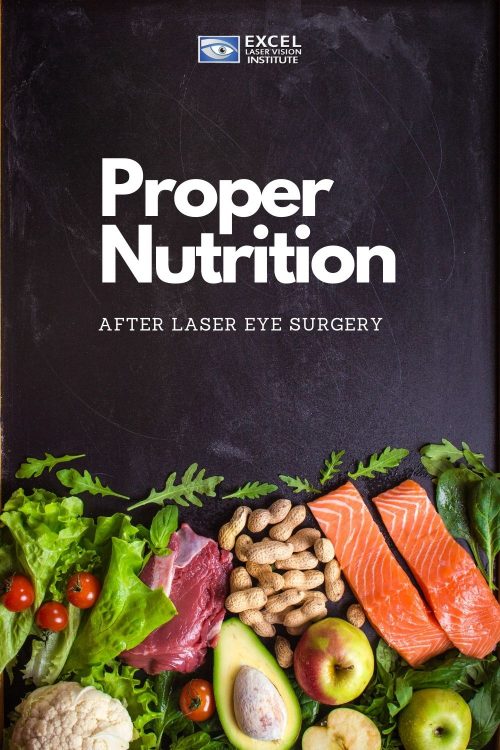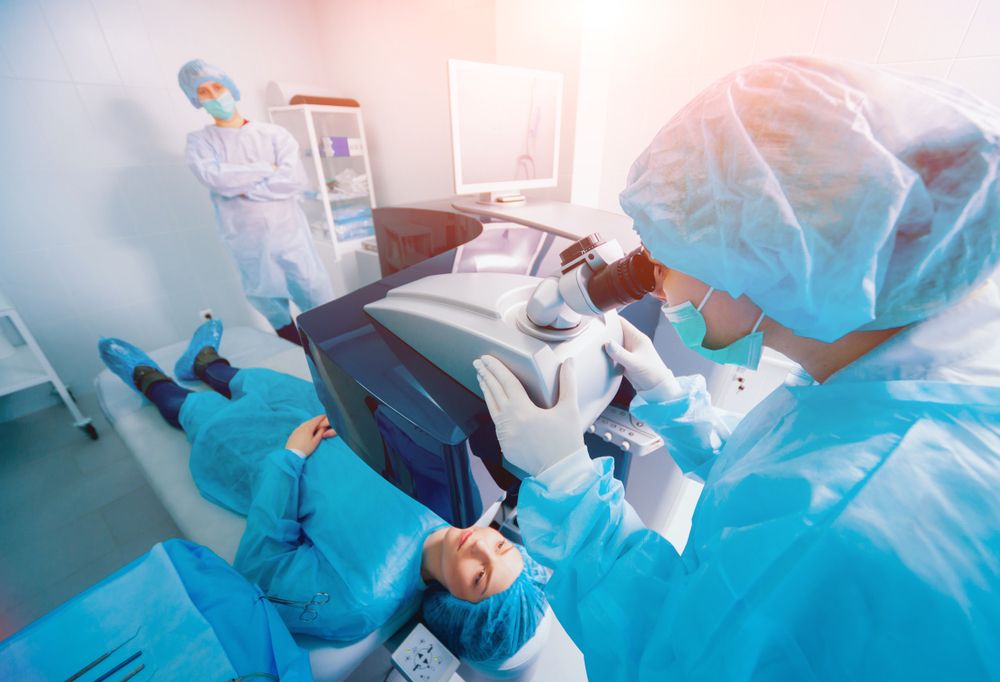
Everything You Need to Know About LASIK Surgery
Ever wondered about the buzz on LASIK surgery in Orange County and across Southern California? LASIK is a popular eye treatment for people with vision problems. If you are considering undergoing laser eye surgery, be sure that you know all the fine details first. Let us discuss the things you need to know about LASIK.
What is LASIK Surgery?
LASIK stands for laser in-situ keratomileusis. It is one of the various surgical techniques that are used to reshape the cornea and correct vision problems. This procedure is designed to reduce vision problems. During the surgery, an excimer laser gently reshapes the cornea with computer-controlled precision.
cor·nea
: the outermost layer of the eyeball that covers the iris and pupils
: it is a highly organized tissue that acts as a barrier against dirt, germs, and other particles that can harm the eye
Certain conditions, such as injuries, allergies, and dryness, affect the cornea; thus, causing vision problems. Thanks to LASIK surgery, common vision problems can now be easily resolved. Many people in Orange County consider laser eye surgery as a revolutionary procedure as it eliminates the need to wear eyeglasses or contact lenses in performing everyday tasks.
What are the advantages of LASIK surgery?
With laser eye surgery, common vision problems are becoming less of an issue. In Orange County, LASER eye surgery is mostly performed on individuals who are near-sighted, farsighted, and/or have astigmatism. Here are some of the advantages of undergoing laser eye procedure.
- No Bandages or Stitches
LASIK is associated with little to no pain. Another advantage is it requires no bandages or stitches, hence living no marks of eye procedure on your face. - Improved Vision
For some, the best or highest degree of vision can only be achieved by wearing eyeglasses or contact lenses. Most patients in areas, such as Orange County, who have undergone LASIK surgery have reported a dramatic decline in eyeglass or contact lens dependence. A large number have also said that after surgery, they no longer need vision support at all. - Safe Procedure
LASIK eye surgery has been around for over 25 years. Around 96% of patients who have undergone this surgery have achieved their desired vision. With further enhancements and the latest technologies, this percentage will increase.
Although many people have gained the benefits of undergoing eye procedure, a big population is also clueless about it. LASIK is commonly confused with cataract surgery. Do not be confused, though. Let us differentiate the two.
LASIK vs. Cataract Surgery
Laser eye surgery and cataract surgery are two different procedures.
How do they differ?
LASIK is the most common laser eye surgery. This procedure is typically performed on both eyes in the same session. LASIK surgery is not an option for individuals with cataract.
On the other hand, as most people in Orange County know, cataract surgery is a treatment applied to the lens of the eye. Unlike LASIK, cataract surgery corrects near-sightedness and farsightedness but not astigmatism. Its primary function is to remove the cloudy lens inside the eye and replace it with a clear plastic implant.
How are they the same?
Both procedures incorporate lasers in at least some of the surgical steps, providing patients with 20/20 vision or even better. These two procedures are also performed under local anesthesia while the patient is awake. Lastly, there is no recovery time for these two procedures.
Answers to Common LASIK Questions
To end our discussion about LASIK, here are answers to frequently asked questions about the procedure.
- LASIK is a safe procedure. It was approved in 1995 by the Food and Drug Administration (FDA), and since then, no laser vision correction surgery complications have yet been filed.
- It is a pain-free procedure. Many patients are surprised to not feel any pain during their surgery. This is because anesthetic drops are used to numb the eye before the surgery.
- Depending on your condition. You can resume normal activities the following day. Most patients are able to see clearly a day or two after the surgery.
Now that we’ve discussed everything you need to know about LASIK eye surgery, the next thing you need to do is to consult your doctor before undergoing the procedure. Do you have more questions? Schedule a consultation with our resident doctor, and learn more about the procedure.

Questions to Ask to Help You Find Good LASIK Surgeons in Los Angeles and Orange County
LASIK surgery is undoubtedly one of the most effective treatment methods for correcting refractive errors. As such, it should come as no surprise that there are a large number of LASIK surgeons in Los Angeles and Orange County alone. This can make it quite simple to find a surgeon.
Of course, you’ll want to choose the best eye surgeon in Orange County that you can find. On top of this, you will want to choose a surgeon who you feel comfortable with. This is often easier said than done, thanks to the sheer number of LASIK surgeons available. As you visit several eye surgeons, be sure to ask the following questions to help you determine if the LASIK surgeon you are speaking to fits the bill.
Five Questions You Should Always Ask LASIK Surgeons
- How often do you perform LASIK surgery?
This is one of the first questions you should ask during your appointment with LASIK surgeons in Los Angeles. Generally, you want to go with a surgeon who frequently performs LASIK surgery and has done it for at least a few years. LASIK surgery is a delicate procedure that relies on a lot of experience from your surgeon. Your surgeon’s experience will also play a large role in your post-op care and follow-up appointments. Other means to help you gauge the experience of a particular surgeon are to ask where he/she trained to perform LASIK surgery and whether he/she undergoes regular training to improve skills. - Would it be possible to have both of my eyes treated on the same day?
In many cases, the answer to this question would be a resounding “yes.” It isn’t uncommon for people who have refractive errors to have both eyes treated during the same procedure. Many surgeons will also recommend this as it is definitely convenient for both parties. However, a good eye surgeon will not force you to have both eyes done at the same time if you are not comfortable with the idea or if your current financial situation does not allow you to have both done at the same time. - Is now the best time to undergo LASIK Surgery?
There will be times when you are happy to just get it over with and push through with LASIK surgery. However, there are certain scenarios where waiting a year or two would be more beneficial. Although individuals above 18 years of age are eligible for LASIK surgery, the eyes still undergo changes until age 25. Age-related changes in vision also tend to manifest at age 40. Having LASIK surgery too early may lead to the need for retreatment at a later date. Consult your surgeon to know the best time to undergo the procedure. - Where Will You Perform the Procedure?
LASIK surgeons may have several offices around Los Angeles, so it is entirely possible that the procedure will be done at a different location from the office you met your surgeon. Of course, this isn’t just a matter of knowing where you need to show up on the day of your procedure. It pays to know where the procedure will be held so you can research on the area. Try looking up parking spaces and how long it will take you to get there from your home. Other factors you should research on include how many patients that particular location sees on a regular basis, as well as if the location has had any issues with patients developing complications in the past. - How long will it take before I fully recover from the procedure?
Normally, patients who have undergone LASIK surgery are able to resume normal activities within 24-48 hours after LASIK surgery. The recovery period, however, may vary from patient to patient. The best eye surgeon in Orange County will exert the best effort to set your expectations properly. After all, there are many factors that may impact the length of your recovery period, including how well you follow your surgeon’s post-op instructions. Be wary of surgeons who overpromise.
Excel Eye’s Resident LASIK Surgeon
Our resident doctor, Dr. Ferzaad Moosa, is a refractive specialist and board-certified ophthalmologist. He has performed thousands of LASIK procedures in Southern California. You can trust that he will take care of you throughout your operation.
Still have a lot of questions about LASIK surgery? Schedule an appointment with our resident doctor today, and get the answers to all your questions.

What to Do Before Your LASIK Vision Correction
If you are suffering from severe nearsightedness, farsightedness, or astigmatism, there is a good chance that you have been recommended to undergo LASIK eye surgery at a local LASIK eye center in Los Angeles. The procedure is often entirely optional, but there is no denying the numerous benefits of undergoing the procedure now rather than later.
Preparing for Your Procedure at a LASIK Eye Center
If you have already scheduled eye surgery at a LASIK eye center in Los Angeles, it’s only natural to prepare yourself as well as you can before the day of the procedure. One of the keys to quick and proper recovery after LASIK surgery is adequate preparation. Here are a few ways you can better prepare yourself for the upcoming procedure.
-
Inform Your Surgeon of Any Special Medication
Before confirming the date of your procedure, make sure you inform your surgeon about any particular medication you may be taking (i.e., hypertension, blood thinners, etc.). Your surgeon needs to know about these because certain medicines may interfere with the effects of the anesthetic eye drops used. If there are any, your doctor may need to postpone the procedure and consult your regular physician to see if there is any medicine you can stop taking for a few days until your scheduled LASIK vision correction in Los Angeles.
-
Kick Your Bad Habits to the Curb
If you smoke tobacco products or consume alcoholic beverages on a regular basis, it is highly advised that you quit several weeks before the procedure. Both drinking and smoking significantly slow down the body’s ability to heal itself, which will prolong your recovery period. The risk of complications may also increase if you continue to smoke or drink. If you’ve been looking for extra motivation to kick these bad habits to the curb, your upcoming surgery may be the reason you need to finally quit.
-
Prepare Meals Ahead of Time
Getting enough rest following the procedure is vital for faster recovery following LASIK surgery. It’s a good idea to prepare a few meals the day before your scheduled procedure. This is so that when you get back home from the LASIK eye center in Los Angeles, you can just lie down and not have to worry about preparing a meal for yourself. Additionally, many patients still feel quite groggy or a little lightheaded a few hours after the procedure, which can make it difficult to cook. This is when placing a pre-cooked meal in the microwave can be a boon.
-
Ask a Friend to Drive You Home
One week before your procedure, it’s a good idea to give a family member or close friend within the area a call and ask him or her to accompany you to your procedure. As you can probably imagine, you will not be in a condition to drive properly following the LASIK vision correction since the affected eye will be covered as a form of protection. It is recommended that your family member or friend accompany you going to the vision center as well since it is possible that your procedure goes smoothly and wraps up earlier than expected. You may also want to ask if he or she can keep you company at home a few hours after the procedure just so there’s someone around in case of an emergency.
These are only a few ways to prepare yourself better for upcoming LASIK eye surgery. Be sure to consult your LASIK surgeon before your procedure for other tips you need to follow. Bookmark this page to discover more tips about LASIK eye surgery in Los Angeles. LASIK vision correction is a crucial procedure so you should not take special preparations for naught.

4 Ways to Know If You Need to Undergo LASIK Surgery
LASIK surgery is the most common laser vision correction procedure in the United States. In fact, out of all refractive procedures in the U.S., 96% of them involve LASIK surgery. It’s not difficult to see why LASIK surgery in Orange County is so popular. It boasts an exceptional success rate and presents a negligible risk of complications. All of these make LASIK surgery an excellent option for many people struggling with vision problems.
LASIK surgery is an optional procedure. Some people prefer to undergo LASIK surgery early on to correct their vision, while some try to postpone it for as long as they possibly can. When you decide to undergo LASIK surgery is up to you, but there are certain situations when undergoing surgery the soonest possible is much better than leaving it for a later date.
When should LASIK surgery be your top priority?
Here are a few scenarios when going through LASIK surgery should be a priority:
-
Moderate to Severe Nearsightedness/Farsightedness
Changes in vision are a part of the aging process. While prescription glasses help correct milder versions of nearsightedness (myopia) or farsightedness (hyperopia), they are often not an ideal choice for some people with severe cases of either vision problem. Glasses with high grades are often uncomfortable to wear, and the discrepancy between wearing glasses and not wearing them can be quite jarring, with some people experiencing dizziness or even vertigo. In such cases, corrective eye surgery in Orange County may be a better option.
-
Large Discrepancies in Astigmatism
Astigmatism is another vision problem that affects a large number of Americans. The condition occurs when the cornea flattens or curves at different rates. It isn’t uncommon for astigmatism to affect both eyes at different rates. However, if the discrepancy between the two eyes becomes too large, it may lead to nausea and migraines. Severe astigmatism can also make it difficult to see at night due to blurry vision. Although prescription glasses may help correct astigmatism, it does not address the actual issue. As such, astigmatism may progress further. LASIK surgery offers a longer-lasting solution.
-
Your Employment Status Depends on Your Eyesight
Some careers require people to have a near perfect vision at all times; an example is airplane pilot. Unfortunately, refractive errors can still affect these people. In some cases, wearing corrective glasses or contact lenses may not be ideal for these professionals as they can interfere with their work. If the same applies to you, it might be best to undergo LASIK surgery in Orange County as soon as possible.
-
You’ve Been Told to Undergo LASIK Surgery, But Haven’t Done So Yet
Some people have already been recommended to undergo corrective eye surgery in Orange County in the past, but have yet to do so. Reasons may vary, with some people simply unsure about the risks of LASIK technology during its earlier years, while others simply did not have the time or resources to undergo the procedure in the past. Now is the perfect time to get LASIK surgery. The technology surrounding the procedure has improved by leaps and bounds over the last decade, significantly reducing risks and complications.
Take note that you do not necessarily need to experience any of the above before you can opt to undergo LASIK surgery. The procedure is completely elective after all. If you are interested to see if LASIK surgery is a viable option for you, do not hesitate to schedule an appointment with our resident surgeon, Dr. Ferzaad Moosa.
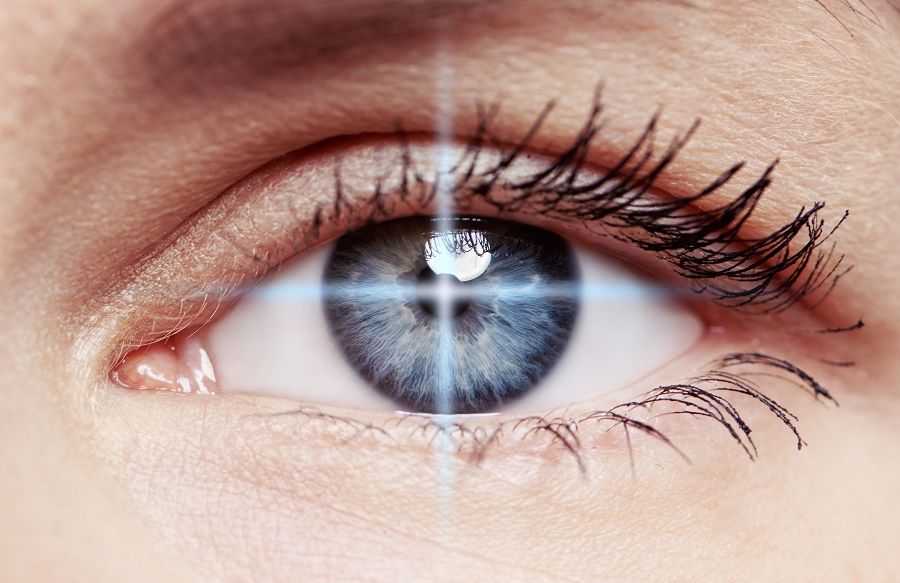
Consult With The Best LASIK Surgeons
If you are having laser eye surgery, then you should always seek out the best LASIK surgeons Los Angeles. You want to find someone with a great reputation and someone around whom you feel comfortable. Once you’ve found that person and had the procedure, you’ll want to be prepared for the recovery process. Here are some things for which you should be ready during the first few weeks post-surgery.
Steps For A Speedy Recovery
Right after the surgery, you will be given eye shields or goggles to wear. You’ll need to have them on as you sleep for the first few nights. They’re a little uncomfortable, but don’t remove or jostle them. You don’t want to touch your eyes in any way for the first couple of days, even by accident. For several days after the procedure, don’t rub your eyes. That’s hard to remember sometimes, but it’s imperative that you do so in this case.
Use Your Eye Drops
You’ll be given a series of different eye drops for after the procedure. Administer them exactly as your doctor told you. They will help you heal. Wash your hands periodically, and try to keep them away from your face if they might be dirty, especially when you’re about to apply the eye drops. You want to avoid infection, especially immediately after the surgery. Avoid wearing makeup for at least a week after the surgery, and wear sunglasses when you go outside. Your eyes will be very sensitive, and you’ll want to avoid direct sunlight. Some people even like to wear sunglasses indoors.
Stay In Clean Environments, And Get Lots Of Rest
After laser eye surgery, stay in sterile environments. No one should be smoking around you, and you should stay away from places that are dusty, or where there is any chance of chemical vapors or anything else abrasive in the air. Resting your eyes is important too. Sleep is when our body repairs itself, and that is especially true after any surgery.
Recovering from any surgery can be a pain. It requires patience, and you might experience halos in your vision or a gritty sensation in your eyes for a while afterward. These should be temporary though, and a few weeks down the line, you should not only be feeling better, but your vision should be much improved. You will change your life for the better by having LASIK.
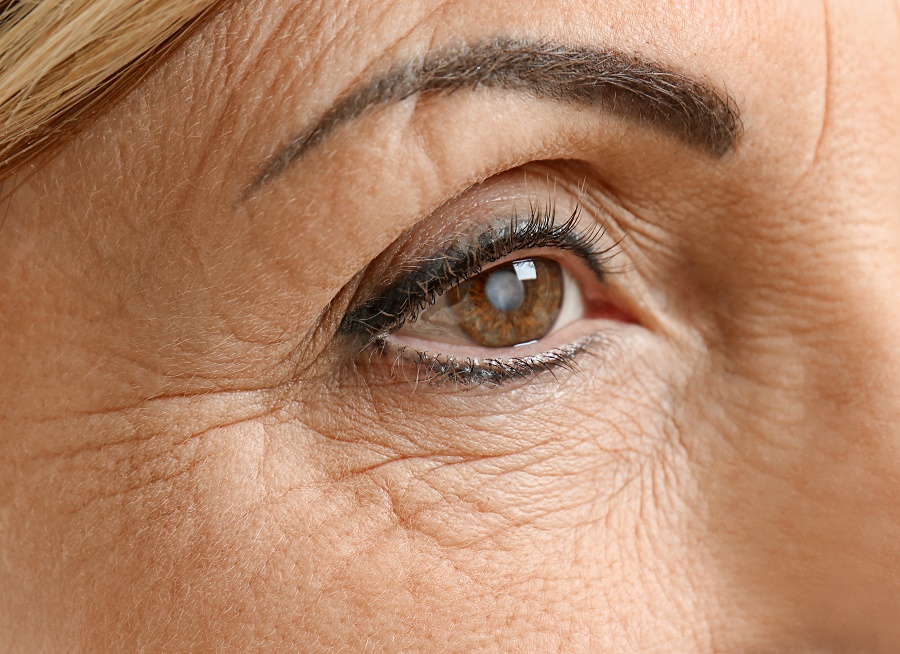
With Trusted Cataract Surgeons, Your Vision Is Sure To Improve
If you’re on an older person, and you’re having problems with cataracts, you’ll be pleased to know that there are surgical options available today that can likely help with the issue. You should find the best cataract surgeons Los Angeles, and then you can talk about your options with them. If you’ve decided to got through with the procedure, you’re going to need to know what to do to prepare yourself beforehand. Here are some of our best suggestions in that regard.
How To Prepare
Cataract surgery is when the lens of your eye is removed and usually replaced with an artificial lens. The cloudy effect caused by cataracts will hopefully be diminished as a result of the procedure, or eliminated entirely. The ophthalmologist will do the outpatient procedure, probably in his or her office, so you won’t need to worry about staying in the hospital. Approximately a week before the surgery, the doctor will perform an ultrasound test. It’s painless, and it will measure the shape and size of your eye. This will help the doctor determine the correct type of lens implant.
If you’re taking certain medications, especially ones that could increase the risk of bleeding during the procedure, you’ll be asked to discontinue those. If you’re taking medications for prostate problems, let your doctor know. Some of these can interfere with a surgery of this nature. You’ll fast before the surgery. In most cases, you’ll not eat drink or eat anything for twelve hours beforehand. To reduce infection risk, you’ll also use eye drops. These are special antibiotic drops that you’ll use starting a couple of days before the procedure.
Be Prepared For Your Recovery
The same day as your surgery, you’ll usually be able to go back home. You won’t be able to drive, though, so have a friend or family member handy to act as your chauffeur. You’ll also need to have somebody to help you around the house for at least a couple of days afterward. Your doctor will probably limit certain activities, like lifting things, for up to a week after the surgery.
The most important thing to remember about cataract surgery is that it is very safe and that it has been performed many, many times. Provided you have a trusted surgeon and you’re a good candidate, the possibility of there being complications is minimal. Your vision should be significantly improved, and it will undoubtedly impact your life in a positive way.
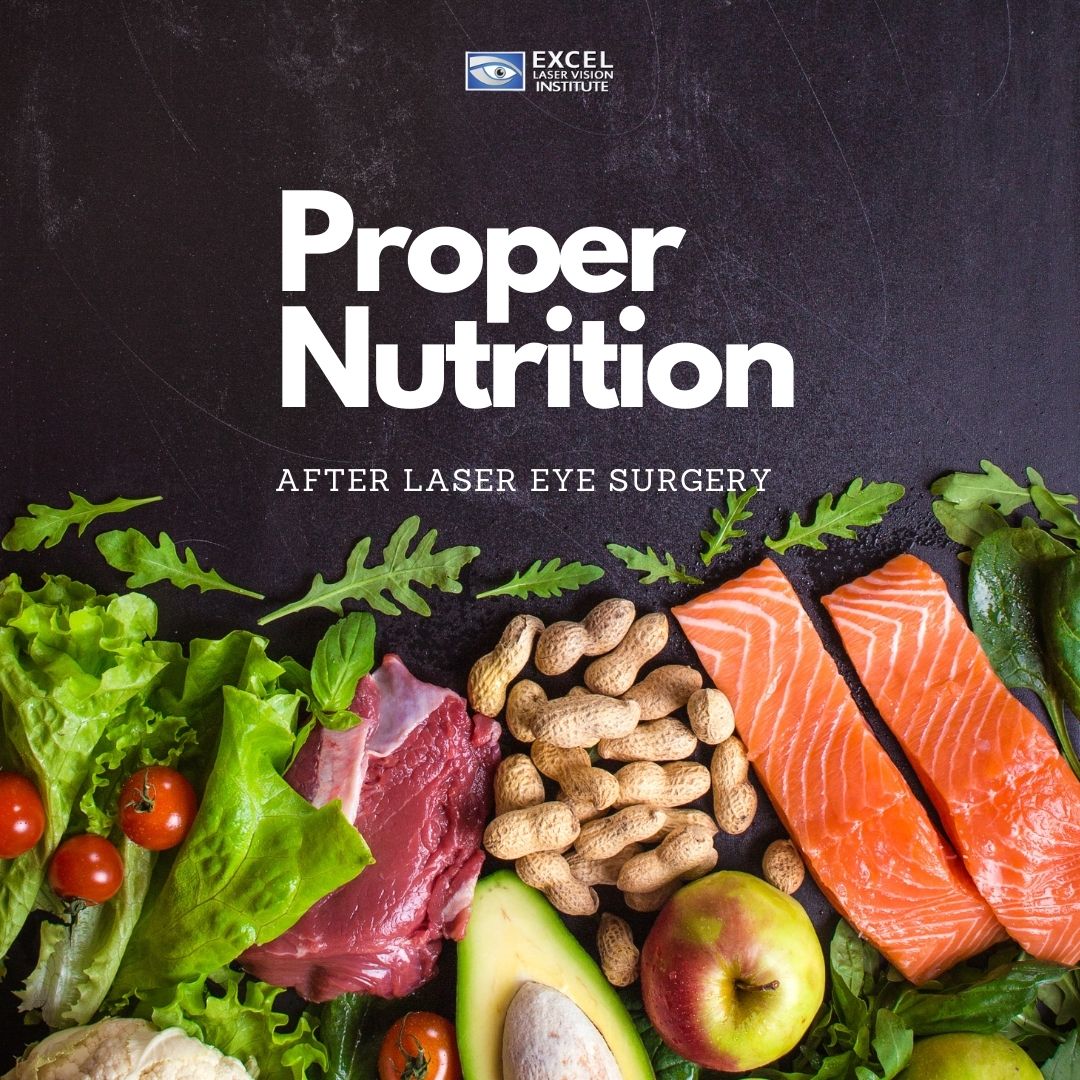
Your LASIK Surgeon Can Give You Advice About Proper Nutrition After Surgery
If you’re having vision trouble, you might have considered seeking out a LASIK surgeon Orange County. If you have sought one out and you’ve decided to move forward with LASIK, then you probably have some questions about how best to take care of yourself after the procedure. To ensure that you heal as quickly as possible, you need to eat the right foods. In this article, we’ll talk a little about that.
Proper Nutrition Is Important
Nutrition is always necessary, but it might be even more so when your body is healing from surgery. You’re going to want to limit your consumption of processed and prepared foods. Instead, go for protein, which contains amino acids that will help with tissue regeneration and will speed up healing. Lentils, nuts and beans, low-fat dairy products, eggs, fish, and poultry will all be useful to you during the weeks after the procedure. Cold water fish are loaded with Omega-3 fatty acids, and these are good for eyesight. They also improve the tear film’s oily layer, which is especially handy because the eyes are drier than usual following LASIK.
Carbohydrates are also beneficial, just make sure that they’re the right ones. Eat high-fiber carbs during the healing process, including vegetables, fruits, and whole grains. Avoid white bread or refined carbs. You can also eat beans, legumes, and carrots. Carrots are perfect snack food while healing because they are full of Vitamin A, which improves eyesight.
You’re going to want vitamins, but most especially A and C. There are pill forms for both, but you can also get them in food by eating sweet potatoes, citrus fruits, dark, leafy greens, tomatoes, and sweet bell peppers. Most LASIK surgeons will probably tell you to consume Omega-3 pills for several months after the surgery. Flax-seed oil serves this purpose as well.
With the right diet, the chances are much higher that there will be no complications, and you will enjoy the full benefit of your surgery. In addition to eating the foods mentioned above, you should drink plenty of water, to flush any toxins out of your system that might be sticking around following the procedure. Eight 8-ounce glasses of water are the minimum recommended. With the right fuel in your body, you should be able to heal fully, and hopefully you’ll have the vision improvement for which you were looking.

There Have Been Advancements In Laser Eye Surgery
If you’re experiencing vision problems at any age, you’ll be pleased to know that medical advancements have progressed to the point that there are many options available to you. If you’re thinking about laser eye surgery Orange County CA, you should consult with your eye doctor about which procedure might be right for you. In this article, we’ll discuss how laser eye surgery has evolved.
Corrective Eye Surgery Advancements
In the past quarter-century, corrective eye surgery has grown by leaps and bounds. Radial Keratotomy, or RK, was pioneered during the 1980’s. It involved incisions to flatten the surface of the eye, and it was used to correct nearsightedness. Some of the individual results didn’t work out so well in the long term, though. Regression and fluctuating vision were the most common problems. RK is now considered to be obsolete, as new and better techniques have come along.
Photorefractive Keratectomy, or PRK, was then developed. It was the first laser vision procedure to remove tissue directly from the surface of the eye to change the cornea’s curvature. It is still used somewhat today, but LASIK has replaced it as the most popular corrective eye surgery.
LASIK was developed not long after PRK, and it reshapes the cornea so that light entering the eye can be properly focused on the retina. The result is clearer vision. The reason that LASIK has taken over as the most popular procedure from amongst these is that it is very safe, and it can be used to treat so many conditions, including astigmatism, farsightedness, and nearsightedness.
Which Is The Right Procedure For Me?
You will need to talk with your doctor about which surgery is right for you, or if surgery is a viable option at all. Even if you and your eye doctor decide to pursue LASIK as the avenue through which you will regain clearer vision, there are several different versions of it, depending on your age and the exact nature of your vision problem. There is LASEK, epi-LASIK, bladeless LASIK, and PRK. Your doctor should be able to go over each of these in detail, and between you both, you should be able to figure out which option is most likely to be beneficial.
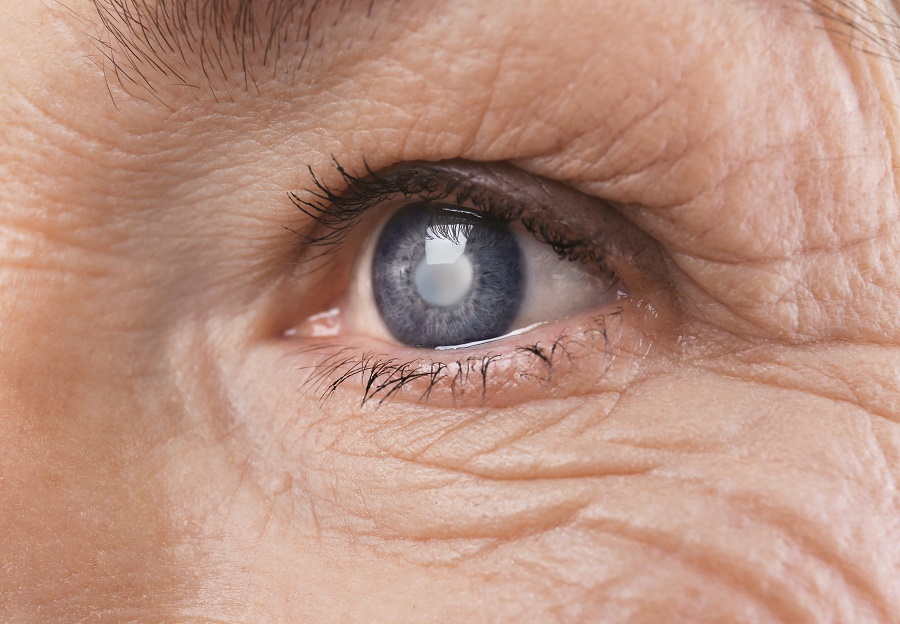
There Are Different Options Available For Cataract Surgery
Have you considered cataract surgery Los Angeles? If you’re age fifty or over you might have visited an eye doctor, and they said you were developing cataracts. This occurs when the eye lens becomes cloudy. Cataracts might sound scary because you cannot correct them by LASIK, contact lenses, or glasses. However, cataract surgery is a safe and viable option these days, and it can often clear up your cataracts while also reducing your dependency on eyeglasses.
How Does It Work?
In cataract surgery, the cloudy lens inside your eye is taken out and replaced by an artificial lens referred to as an intraocular lens, or an IOL. In this way, clear vision is restored. This is generally an outpatient procedure, not requiring an overnight stay in a clinic or hospital. Most of these procedures involve using an ultrasonic device which utilizes a high frequency to break up the cloudy lens into tiny pieces. These pieces are then carefully removed using suction. These days only a small incision is required, which leads to faster healing and reduces the risk of complications like retinal detachment.
After the surgeon removes all the pieces of the cloudy lens from the eye, they then insert a clear IOL, positioning it between the pupil and iris, in the same spot previously occupied by your natural lens. The incision in your eye is then closed, sometimes requiring a stitch, sometimes not. A protective shield is left over the eye to keep it safe as it heals, and once it does, your vision should be vastly improved.
Other Options
There is also such a thing as laser cataract surgery. This is when femtosecond lasers, like the ones used to create the corneal flap in LASIK procedures, are used for certain steps in the cataract surgery. This is recent technology, and it reduces the need for hand-held tools and surgical blades. These lasers can be used to remove the anterior capsule of the lens, fragment the cataract, or create peripheral corneal incisions so that astigmatism can be reduced. This procedure can sometimes be more expensive than traditional cataract surgery. For the latest information about it, consult with your surgeon.
Technological and medical advancements mean that there are more options available than ever for dealing with cataracts. Talk to your eye care professional and figure out what makes the most sense for you.
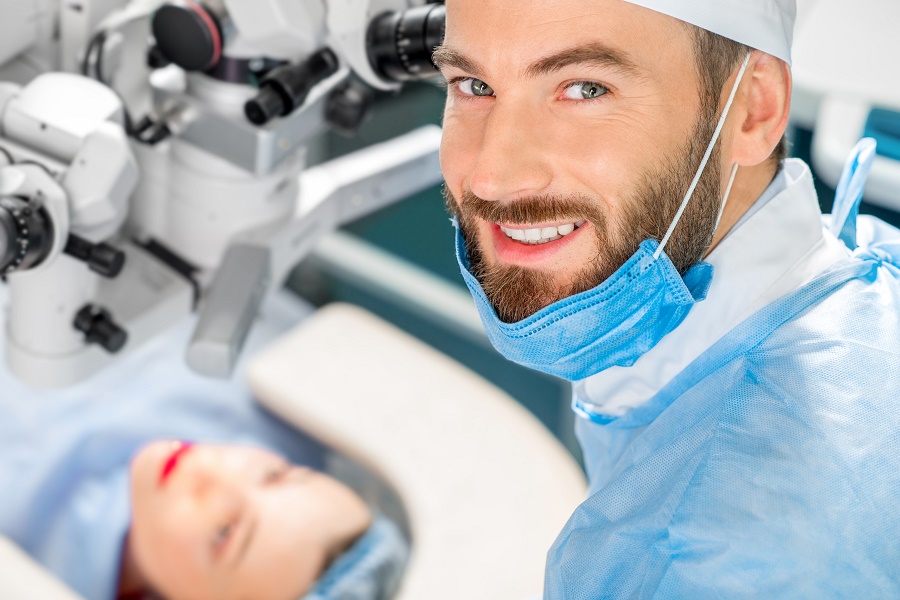
There Are Some Who Need An Enhancement To LASIK Eye Surgery
LASIK eye surgery Los Angeles is a relatively simple procedure, and one that boasts a high success rate. There are thousands of people who have had it done, and their vision has improved significantly. You should go into this procedure with your eyes open (so to speak) and understand that there are sometimes complications that arise, just like with any surgery. In this article, we’ll talk a little about LASIK enhancement.
What Is It?
When a surgeon talks about LASIK enhancement, what he or she usually means is that a follow-up procedure has become necessary after the original surgery. The usual reasons for this are either the results of the first surgery being less than satisfactory or if your vision has significantly changed again sometime after the original one took place. Retreatments are seldom needed these days, due to the ever-improving technology. That does not mean that everyone who receives LASIK will come away with perfect 20/20 vision after just one procedure though. Each case and each person is unique. Sometimes another procedure is required to get that clarity of vision for which you’re searching.
How Do I Know If I Need Another Procedure?
Different factors will determine your rate of satisfaction following the initial procedure. These include your age and expectations, whether you have dry eyes following LASIK, whether you are still near or farsighted or have astigmatism, or the health and characteristics of your corneas. Remember, what you want from LASIK is for your dependency on glasses and contacts to decrease, and you to be able to see reasonably well without them. You’re looking for improvement, but it would be unwise to hope that your procedure will result in perfect vision and no glasses or contacts necessary under any circumstances at all. Results vary, and no two people have the same experience.
You’ll need to talk to your surgeon if you think that the treatment didn’t work as described, or if you feel strongly that additional surgery might be in your best interest. The doctor will examine your corneas, and together you will discuss your options. While it is accurate that the overwhelming majority of those who have LASIK see significantly better afterward, there are some who only experience visual acuity after a second surgery.






